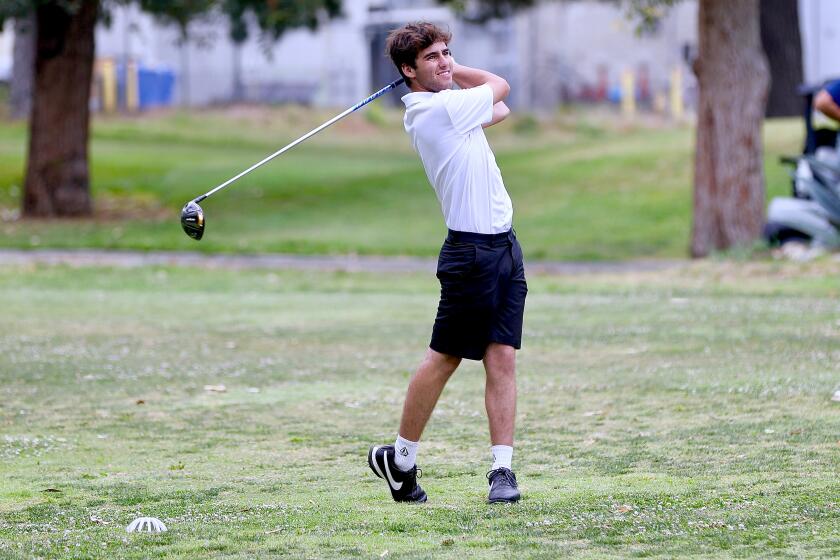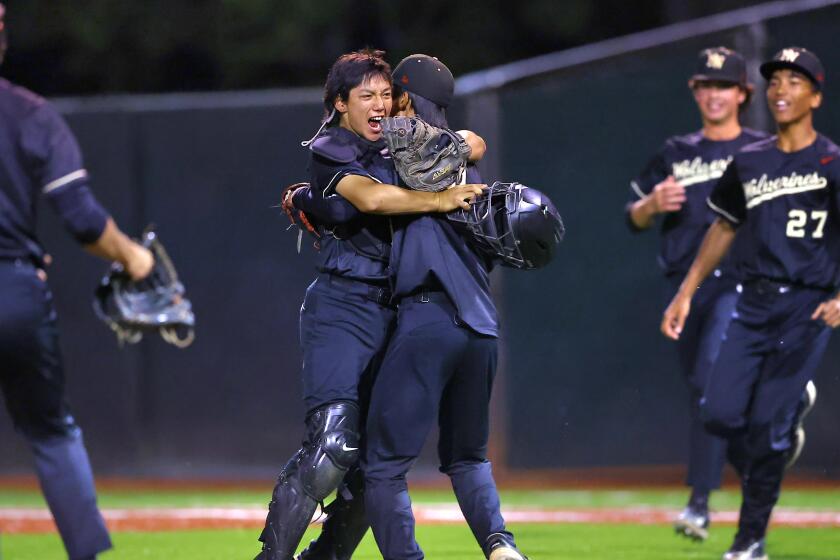NCAA Changes Aimed at Making Compliance Easier
Bryce Jackson, a learning-disabled athlete at Santa Margarita High, might have an easier time navigating the NCAA’s eligibility requirements because of another learning-disabled athlete who went before him.
Chad Ganden, a former state swimming champion at Naperville (Ill.) North High School, is sitting out his freshman year of competition at Michigan State because several of his high school courses did not meet the NCAA’s eligibility requirements.
The Americans with Disabilities Act mandates that all public institutions, including the NCAA, make accommodations for the disabled, including the learning disabled.
Ganden’s family sued the NCAA over the ruling and lost. In the wake of the lawsuit, however, the NCAA recently has streamlined the eligibility process for learning-disabled students. The new provisions may help Jackson as well as future learning-disabled student-athletes.
Like Ganden, Jackson faces a deficit in core courses because the NCAA has not approved three English courses he took at Santa Margarita. Jackson also was forced to file additional documentation with the NCAA after taking an untimed Scholastic Assessment Test through the SAT’s Services for Students with Disabilities.
The College Board already had certified Jackson’s learning disability, and Valerie Deveraux, Jackson’s mother, found the NCAA’s additional documentation to be burdensome. She said she didn’t learn of the additional documentation requirements until after Jackson received a notice from the NCAA Clearinghouse in January, a month before the initial signing date for letters of intent.
“Because he learns differently, now he has to jump through all these hoops,” she said. “It would be better if they told you ahead of time, that if you take an untimed test, then these are the requirements instead of waiting until the last minute, which could hurt their scholarship possibilities.”
Kevin Lennon, NCAA compliance services director, said some of the new NCAA policies for the learning disabled address concerns like Deveraux’s. Among the new provisions:
* This year for the first time, individual learning-disabled students will be allowed to apply for initial-eligibility waivers on their own. Previously, a student was required to have an NCAA member school apply for the waiver, forcing student-athletes to wait until after they were admitted to a university.
* By March 1, high schools will receive a form asking for a list of core courses for learning-disabled students. This will enable the NCAA to review these courses ahead of time and not at the time of the appeal. Currently, there are only about 1,100 learning disabled classes approved out of 24,000 high schools.
* The NCAA will soon begin certifying learning-disabled students before they graduate. To be certified as learning-disabled, students will submit proof of their disability after their junior year.
* At the NCAA Convention last month in Nashville, NCAA member schools voted to lift the requirement that high school athletes meet certain academic criteria to qualify for an early recruiting visit.
* The NCAA also voted at the convention to allow learning-disabled students to take courses in the summer after their senior year in high school that will count toward their NCAA eligibility.
Get our high school sports newsletter
Prep Rally is devoted to the SoCal high school sports experience, bringing you scores, stories and a behind-the-scenes look at what makes prep sports so popular.
You may occasionally receive promotional content from the Los Angeles Times.



